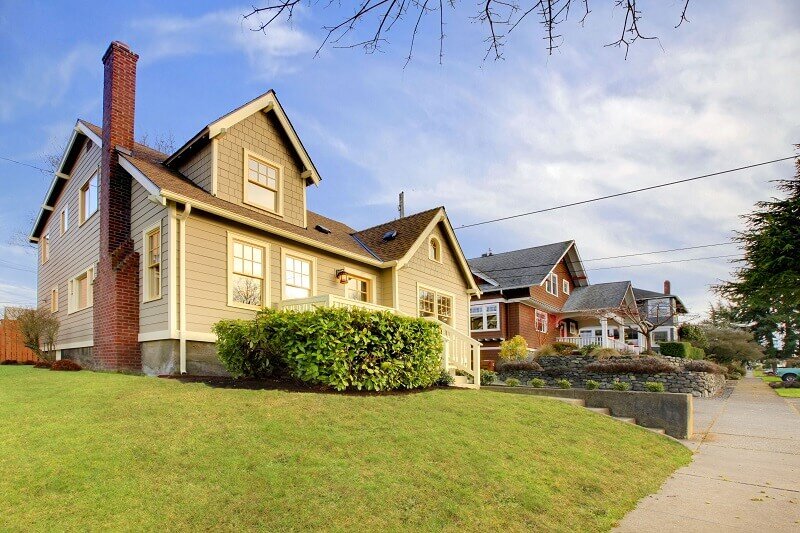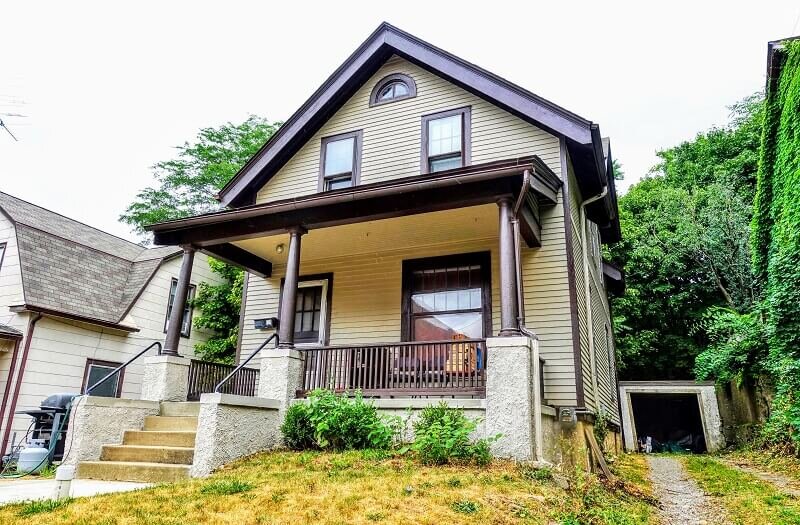
You know that being a landlord can be challenging. On the one hand, the passive income from your rental property is nice, but on the other hand, dealing with property management companies, constant maintenance, and tenant issues can be exhausting. It might be time to exit because of any number of life events. There are some things to know when selling your rental property.
Exiting the rental property market can be extremely difficult, especially when considering pesky tax rules, existing lease terms, local market trends, and tenant-inflicted wear and tear. But if you’re ready to move on from real estate investing, don’t let these obstacles stand in your way.
With careful preparation and the correct strategy, property owners can exit gracefully without too much disruption. Keep reading to find valuable insight into what you need to know when selling your rental property.
Should I Sell My Rental Property?
Selling a rental property can be difficult, and many factors must be considered before real estate investors take the plunge. A crucial factor is whether or not you will be able to make more money from selling the property than you would by continuing to rent it out. You should also consider the following:
- loss of rental income
- the sales prices and other home prices in the real estate market
- any potential tax implications associated with selling a rental property
Other factors that may influence your decision include:
- the current market conditions in your area
- how long have you owned the property
- what kind of repairs or renovations may need before putting it on the market
It’s also important to consider whether or not you have tenants living in the rental property, as this could affect how quickly you can sell it.
Deciding whether or not to sell your rental property is a personal decision that should be based on your situation and goals. Considering all of these factors can help ensure that you make an informed decision that is best for yourself and your finances.
Things to Know Before Selling a Rental Property
Before selling a rental property, it is essential to know the following:
- The potential capital gains taxes that may be incurred
- Whether or not you can defer capital gains taxes with a 1031 exchange
- How to give your tenants written notice and remind them to remove their belongings by the last day
- The amount of tax you will pay when you sell the property
- The likelihood of experiencing capital losses when selling the property
- How to exercise extra care when selling rental real estate
- How to find a buyer to purchase the property with the lease
- Potential strategies for selling your own home without an agent
Laws When Selling a Rental Property
As a landlord, you can sell your property at any time. In general, landlords need to adhere to the following:
- Tenants have the right to stay in the property even until the end of the lease
- Tenants have certain rights and duties under federal law, state statutes, local ordinances, safety, and housing codes
- These rights include fair housing and the right to choose to house free from unlawful discrimination
Under Minnesota state law, landlords must provide tenants with written notice of any changes in terms of their lease agreement. Written notice is a document that informs tenants of changes to their lease agreement. This document must be presented to the tenant at least 30 to 60 days before changes in the lease.
Landlords must also follow all applicable federal laws when selling a rental property. Awareness of the applicable federal housing laws is vital when selling a rental property. Here are some of the critical rules to consider:
- Fair Housing Act: This law prohibits discrimination in the sale or rental of housing based on race, color, religion, sex, familial status, national origin, and disability.
- Sale or Trade of Business, Depreciation, Rentals – IRS: This law outlines tax implications when selling a rental property.
Need to Sell Your Rental Property Fast?
We make selling your rental property a simple affair.
Just fill out the form below or give us a call at: (612) 260-5577 to get your free, no-obligation cash offer!
Pros and Cons of Selling a Rental Property
When considering selling a rental property, it’s important to consider all the factors that go into making the decision. There are financial and emotional factors to think about, as well as tax implications.
Pros of Selling a Rental Property
Selling a rental property can be a great way to diversify your investments and take advantage of the capital gains that come with it. With careful planning, you can minimize the tax implications of selling a rental property and maximize your return on investment.
There are several pros to selling, including:
- Increased Cash Flow – Selling a rental property can provide you with an immediate influx of cash which can be used for other investments or to pay off debt.
- Diversification – Selling a rental property allows you to diversify your portfolio and invest in different assets such as stocks, bonds, and mutual funds.
- Tax Benefits – Depending on the situation, selling a rental property may allow you to take advantage of certain tax benefits such as capital gains tax deferral, or depreciation recapture.
- Freedom from Renters – Selling a rental property means no longer dealing with tenants or maintenance issues associated with owning real estate.
- Opportunity for Growth – Selling a rental property can allow you to reinvest the proceeds into another investment that may yield higher returns over time.
Cons of Selling a Rental Property
The cons of selling rental property are primarily centered on the tax implications.
- Capital gains tax of up to 20% of the home value may be assessed depending on the seller’s filing status and taxable income.
- Home exclusion may not apply. To qualify for this exclusion, the homeowner must have used and owned the property as their primary residence for two years out of the five years before the date of sale.
- Depreciation recapture tax might also be due. When you buy an asset, the IRS lets you deduct some of the cost from your yearly taxes. This is called depreciation. When you sell the asset, the government wants to ensure it gets back the money you deducted over the years.
- Loss of passive income when selling a rental property can be a significant factor. This type of income can be highly beneficial as it provides a steady revenue stream.
Selling a Rental Property to a Cash Buyer
Selling a rental property to a cash buyer is often the best option for landlords who want to quickly and efficiently exit their investment. Cash buyers can purchase the property without waiting for financing, meaning they can close the sale in as little as five days.
This is especially beneficial if you are ready to move on from the rental market but don’t want to wait months for a Realtor to close a sale.
Cash buyers also provide an advantage when it comes to taxes. If you sell your rental property through a traditional real estate transaction, you will be subject to capital gains taxes. However, when selling directly to a cash buyer, you may be able to defer these taxes by taking advantage of a 1031 exchange.
A 1031 exchange, a “like-kind” exchange, is a tax-deferred program established by the Internal Revenue Service (IRS) that allows investors to swap one investment property for another without incurring capital gains taxes. This program will enable investors to reinvest their profits from selling an investment property into a new home of equal or greater value.
Selling your rental property directly to a cash home buyers in Minnesota can help you avoid dealing with bad tenants or other issues with long-term rentals. Cash buyers are typically willing to pay more for properties with tenants in place, allowing you to make more money off your investment while avoiding any potential tenant problems.

Conclusion
Selling a rental property can be a great way to make some extra money, but it is essential to understand the tax implications of such a sale. Capital gains taxes and depreciation recapture tax are two of the most common taxes for selling rental homes.
Pros:
- Potential for profit from rental prices
- No more mortgage payment
- Opportunity to reinvest in other assets and increase your net worth
Cons:
- Hefty capital gains taxes
- Depreciation recapture tax
- Losing out on appreciation potential of single-family homes or multifamily homes
Selling your rental property to a cash buyer is often the best option. It allows you to avoid the hassle of listing and marketing your property and the costs associated with repairs and commissions.
Additional advantages of selling to a reputable cash buyer (you know the type–the ones that advertise “we buy houses Minneapolis” or “sell a house fast in Plymouth“) include:
- You can get more money than you paid for it due to an appreciation in value
- You can avoid negative cash flow and avoid paying closing costs
- In a seller’s market, you can make more money
- You don’t have to worry about necessary repairs or maintenance costs
- Cash buyers are often willing to close quickly, allowing you to move on with your life faster
- You don’t have to pay real estate agent commissions or other fees associated with traditional home sales
- Cash buyers have the full amount needed upfront and don’t need a lender to approve a mortgage
